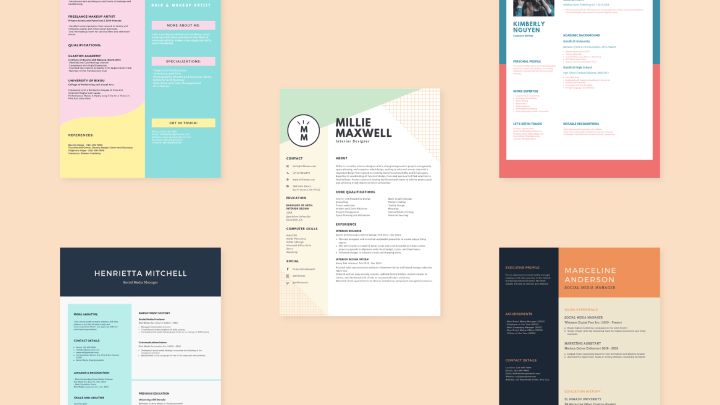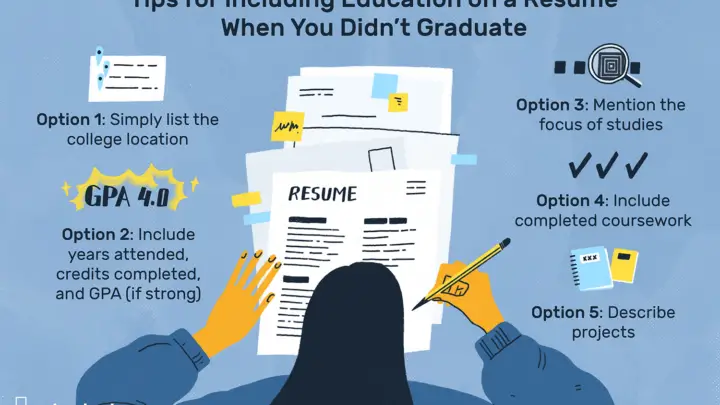Research Shows These 11 Resume Mistakes Make Employers Reject You

Writing a resume or a CV may be a long procedure, but will allow you to reap the benefits of having a dream job where you will get to grow and develop.
However, the line between getting invited for a job interview or getting rejected can be hidden even in some CV and resume mistakes. Writing the perfect resume is just one of many proven job search techniques.
According to OfficeNeedle, who asked two thousand eight hundred employers about mistakes in resumes, you should definitely avoid making these resume mistakes:
1. Multiple fonts

Making your application appear fancy by using two or more fonts could get you rejected by around a half of the employers who participated in the research (forty-six percent of them).
Preferably, choose one font that is also very easy to read. It can be a Sans Serif or a Serif font. Be extra careful with Serif ones, as some can appear hard to read because of the features on the end strokes of each letter.
2. Long applications
Hiring managers and employers are often short on time when it comes to looking over the applications submitted for each of their job openings. That is why they can set aside only a limited amount of time for reviewing your application among many others.
One of the interesting survey findings is that a quarter of the employers spend under one minute reviewing a CV or a resume. Moreover, over half of them admit to rejecting applicants who submit resumes over two pages long.
3. Not including a phone number

When sending job applications, you anticipate the day and the hour when you will get a call from the company. But for the hiring managers to do this, they need your contact info to be correct. In the first section of your resume, provide your contact info.
Ninety-three percent stated you need to write down your phone number when you are including your personal information.
You should also provide your potential employer with your email address. Use an email address that sounds professional. Avoid laughable ones, such as “sk8ergurlxD@yahoo.com”. When asked about such email addresses, twenty-one percent of surveyed employers said they might reject you for it.
4. Linking your social media

Besides a telephone number and an email address, job seekers sometimes link their social media. This is a smart move if the job position you are applying for is connected to social media use and your profile is a good example of a certain practice.
However, if you use your social media profiles for private matters only, including it could only harm you. Remember that your private choices found on the internet could hurt your job search if a potential employer finds something delicate or some information that might be discriminating.
That is why it comes as no surprise that only fourteen percent of the employers who participated in the survey want you to link your social media profiles.
5. Putting oldest roles first
Your recent working adventures and experiences interest hiring managers the most. It comes as no surprise that sixty-one percent of the employers from the survey are likely to reject you if your oldest roles are at the top of the section, and the latest ones at the bottom.
You should make it easy for hiring managers to find recent experience information on your application. By putting your latest roles at the top, you can help employers evaluate your current knowledge and skills more easily. Likewise, provide the most detail for your latest experiences. Also, include the dates and the years for each experience you want to include.
6. Saying why you left a job

Explaining your reasons for leaving a job will just take up precious space on the paper that you could’ve devoted to showing your skills and experiences that are important and related to the job you are applying for.
Out of all the employers who took the survey, only one quarter want to see why you left any job. If you still want to explain it, you can do it in the cover letter or the interview.
7. Not showing how you made an impact
Just under a half of the polled employers stated that not showing achievements gives them a bad impression about a candidate. Furthermore, this makes them likely to reject your application.
Write about your experiences by sharing what you achieved or accomplished while occupying a certain role, rather than just including an endless list of your responsibilities at a certain job position.
Show your potential employer how you could contribute to their brand and business by showing how you made an impact on your previous employers.
You can use numbers to show your impact and your accomplishments. Quantifying your achievements and demonstrating them to your potential employer might make them interested to find out more about you.
For example: “sold a 10k worth art painting” or “made 100k in excursion sales”.
8. Ordering your education list wrong

Around fifty-four percent of employers identified listing education in order from oldest down to the latest as a mistake that could make them reject your application. Instead, you should put your latest education experiences at the top of the education section, along with the dates and years.
Include the university’s full name, as the majority stated it gives them a bad impression on them when you use acronyms.
9. Including your GPA
If you are wondering whether to put your Grade Point Average on your resume, here is what the employers have said. The study found that only seven percent of the employers think it is a mistake not to include your GPA.
If you are not too proud of your GPA, there is no reason to include it in your application. It is probably not as important to employers as are your past experiences and the skills you have.
10. Grammar tenses and spelling
If you apply for a job and the employer finds poor grammar and spelling, around seventy-five percent of the surveyed employers will likely reject your resume. Don’t let this happen as fixing them can be so easily done.
There are many different ways in which you can check if your text has typos available online, such as spell-check. Also, use present simple tense when describing actions that happen in the present. For actions in the past, choose past simple tense.
11. No relation to the job

The study also asked employers if they are likely to reject an application unrelated to the role. Forty-seven percent answered yes. They want your resume to correspond with the written job description.
To do this, you can use the keywords from the description. However, do not overuse them. You don’t want the content to appear as a bunch of keywords stuffed together. The text needs to make sense.
If you have the required skills and experience, also show this as the most important information in your application and you are good to go! These requirements can also be found in the advert for the job you found.
Each time you apply for a different position, you should add a few things or remove a few unrelated things from your resume. However, it will not be necessary to write a completely new application each time as that can also be very time-consuming.
Final Thoughts
To land a job, sometimes all you will have to do is make little tweaks to your CV or resume. If you are not interested in having resume writing services help you secure a job interview, try acknowledging the resume mistakes listed above and fix them once you spot them in your application. Then, you will only have to worry about how to nail your job interview, even when it comes to showing them your weaknesses.

